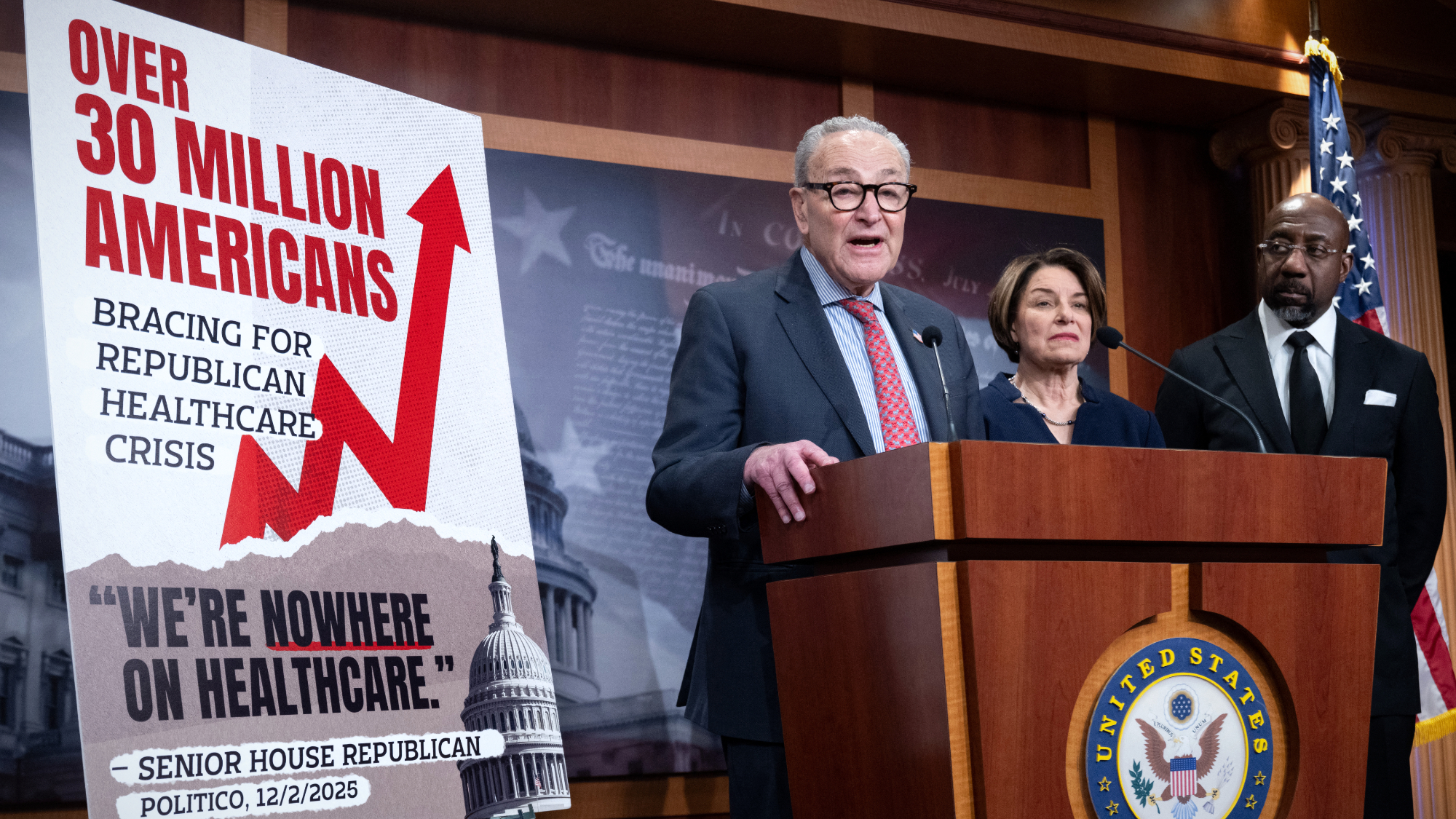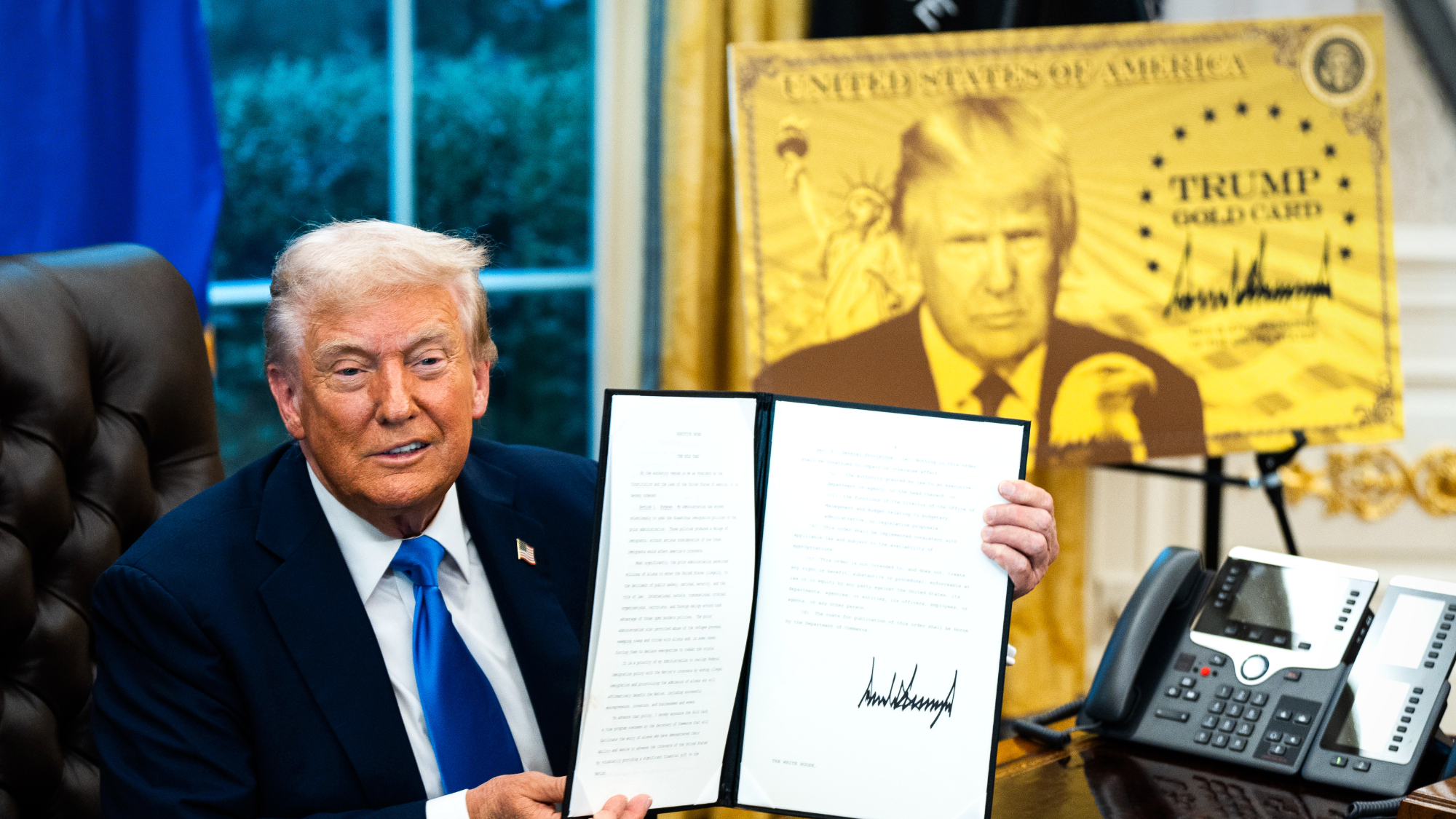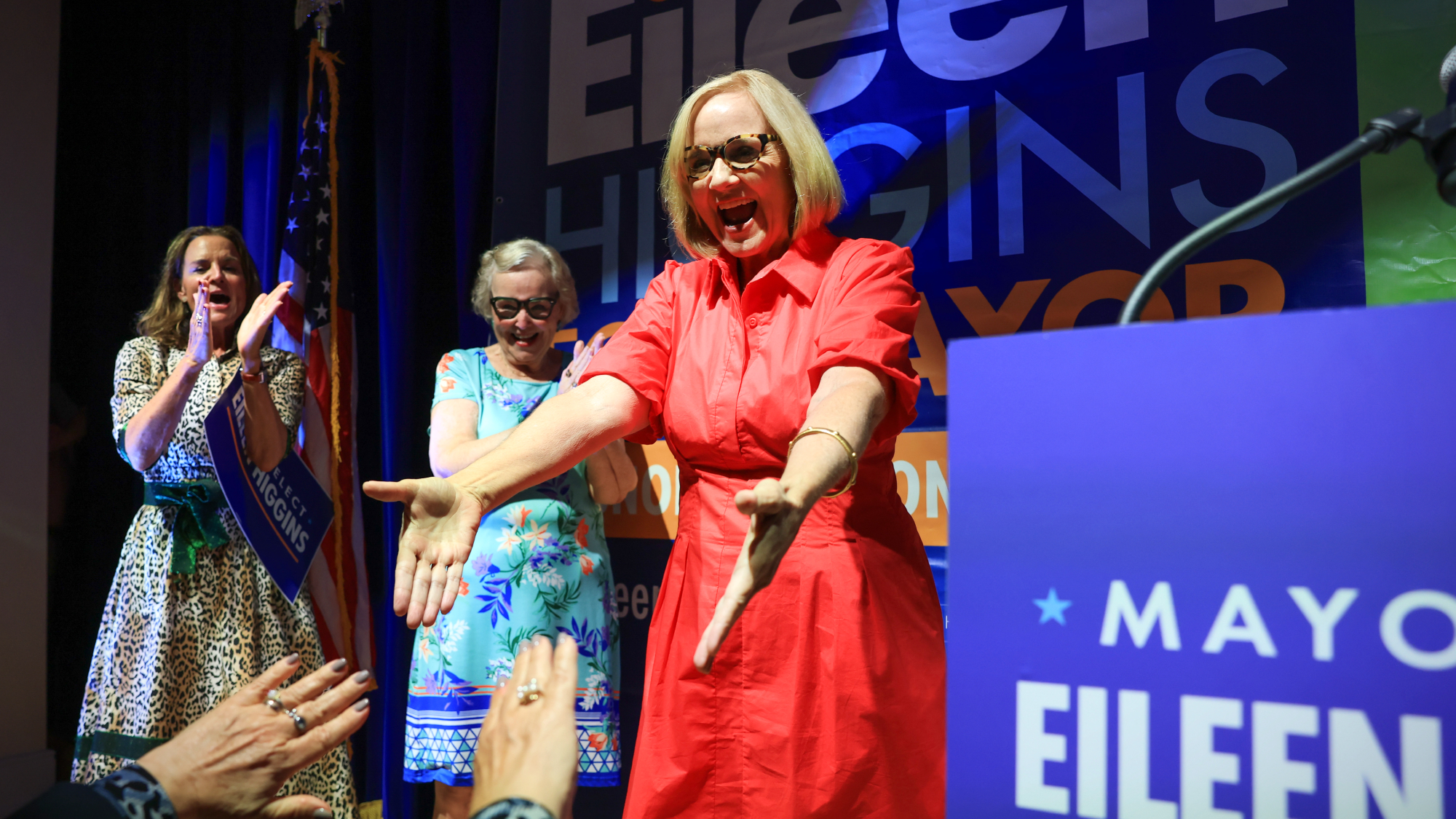Trump's immigration plan, designed to get 60 Senate votes, drops like a lead balloon


The White House released the outlines of its immigration proposal on Thursday, a day after President Trump spoiled the surprise, and Chief of Staff John Kelly and Trump's immigration adviser Stephen Miller briefed members of Congress. Miller told congressional staffers that the proposal — with a path to citizenship for up to 1.8 million young immigrants brought to the U.S. illegally as children plus $25 billion for border security and a host of conservative immigration restrictions — was designed to get 60 votes in the Senate. The initial reaction in Congress wasn't great, and it was worse outside Congress.
On the right, Breitbart News called Trump "Amnesty Don," Heritage Action's Michael Needham said that "any proposal that expands the amnesty-eligible population risks opening Pandora's box" and "should be a nonstarter," and prominent immigration restrictionist Mark Krikorian said Trump "hasn't sold out his voters yet" but this proposal poses "a real potential for disaster." On the left, United We Dream's Greisa Martinez Rosas called the plan "a white supremacist ransom note" and the ACLU demised it as a "hateful, xenophobic immigration proposal that would slash legal immigration to levels not seen since the racial quotas of the 1920s."
"Put simply: It's dead on arrival," says Jonathan Swan at Axios, who spoke with progressive immigration leaders close to top Democrats. The $25 billion for the border wall "trust fund" is at least $15 billion too high, Swan reports, and "the increase of ICE agents, faster deportations, stronger interior enforcement, and the massive cuts to legal immigration" — by 40 to 50 percent, according to liberal immigration analysts — is even worse. They wonder why that's a good trade for an idea, protecting DREAMers, that has overwhelming public support, even among Republicans.
The Week
Escape your echo chamber. Get the facts behind the news, plus analysis from multiple perspectives.

Sign up for The Week's Free Newsletters
From our morning news briefing to a weekly Good News Newsletter, get the best of The Week delivered directly to your inbox.
From our morning news briefing to a weekly Good News Newsletter, get the best of The Week delivered directly to your inbox.
A free daily email with the biggest news stories of the day – and the best features from TheWeek.com
Peter has worked as a news and culture writer and editor at The Week since the site's launch in 2008. He covers politics, world affairs, religion and cultural currents. His journalism career began as a copy editor at a financial newswire and has included editorial positions at The New York Times Magazine, Facts on File, and Oregon State University.
-
 Political cartoons for December 13
Political cartoons for December 13Cartoons Saturday's political cartoons include saving healthcare, the affordability crisis, and more
-
 Farage’s £9m windfall: will it smooth his path to power?
Farage’s £9m windfall: will it smooth his path to power?In Depth The record donation has come amidst rumours of collaboration with the Conservatives and allegations of racism in Farage's school days
-
 The issue dividing Israel: ultra-Orthodox draft dodgers
The issue dividing Israel: ultra-Orthodox draft dodgersIn the Spotlight A new bill has solidified the community’s ‘draft evasion’ stance, with this issue becoming the country’s ‘greatest internal security threat’
-
 Senate votes down ACA subsidies, GOP alternative
Senate votes down ACA subsidies, GOP alternativeSpeed Read The Senate rejected the extension of Affordable Care Act tax credits, guaranteeing a steep rise in health care costs for millions of Americans
-
 Abrego García freed from jail on judge’s order
Abrego García freed from jail on judge’s orderSpeed Read The wrongfully deported man has been released from an ICE detention center
-
 Indiana Senate rejects Trump’s gerrymander push
Indiana Senate rejects Trump’s gerrymander pushSpeed Read The proposed gerrymander would have likely flipped the state’s two Democratic-held US House seats
-
 Democrat files to impeach RFK Jr.
Democrat files to impeach RFK Jr.Speed Read Rep. Haley Stevens filed articles of impeachment against Health and Human Services Secretary Robert F. Kennedy Jr.
-
 $1M ‘Trump Gold Card’ goes live amid travel rule furor
$1M ‘Trump Gold Card’ goes live amid travel rule furorSpeed Read The new gold card visa offers an expedited path to citizenship in exchange for $1 million
-
 US seizes oil tanker off Venezuela
US seizes oil tanker off VenezuelaSpeed Read The seizure was a significant escalation in the pressure campaign against Venezuelan President Nicolás Maduro
-
 Judge orders release of Ghislaine Maxwell records
Judge orders release of Ghislaine Maxwell recordsSpeed Read The grand jury records from the 2019 prosecution of convicted sex offender Jeffrey Epstein will be made public
-
 Miami elects first Democratic mayor in 28 years
Miami elects first Democratic mayor in 28 yearsSpeed Read Eileen Higgins, Miami’s first woman mayor, focused on affordability and Trump’s immigration crackdown in her campaign
